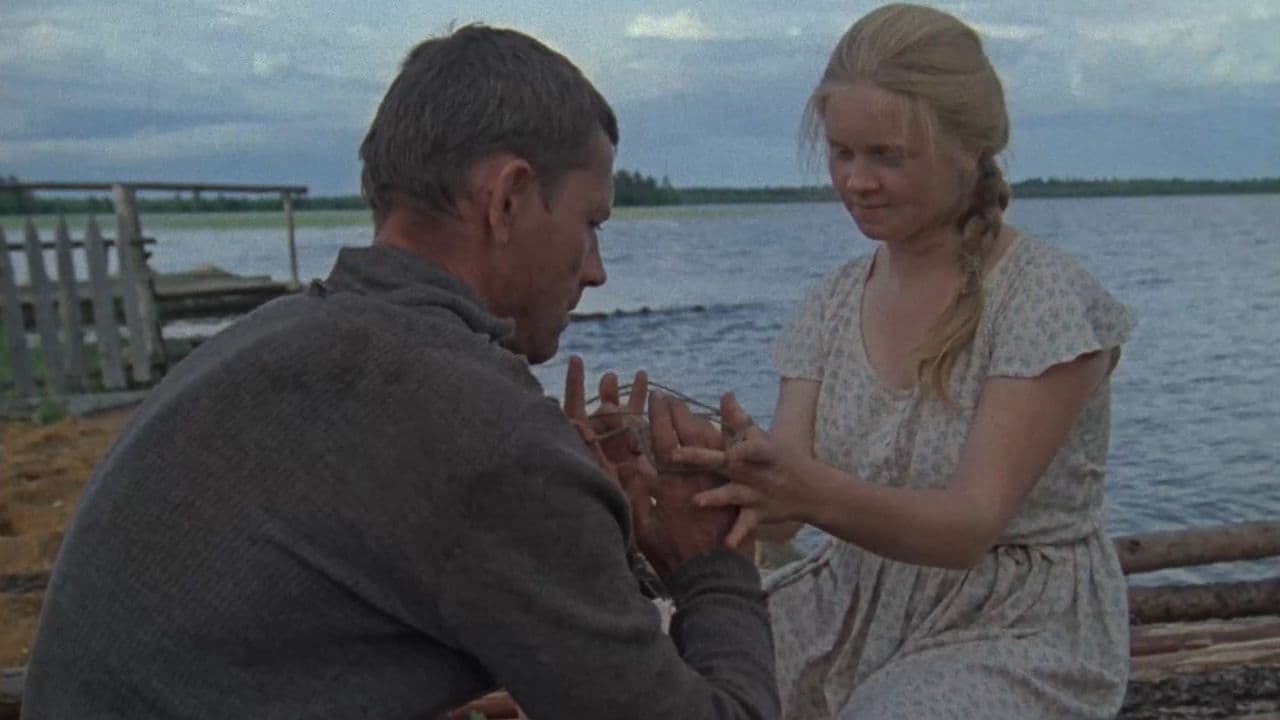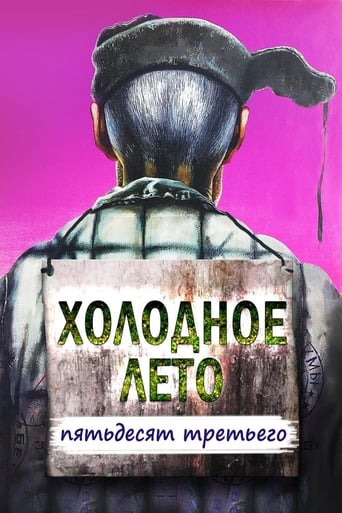Smartorhypo
Highly Overrated But Still Good
GetPapa
Far from Perfect, Far from Terrible
Manthast
Absolutely amazing
Geraldine
The story, direction, characters, and writing/dialogue is akin to taking a tranquilizer shot to the neck, but everything else was so well done.
FilmCriticLalitRao
Generally, amnesty is provided to prisoners on humanitarian grounds in order to initiate reform process. However, there are instances when an offer of amnesty is misused by certain prisoners. Director Alexander Proshkin's Russian film "The cold summer of 1953" chronicles how some escaped convicts misuse amnesty provided to them to terrorize innocent villagers. Based on a series of true events which have a lot of historical significance for Russian people, Proshkin's film faithfully describes how the clash of ideologies continue to have a massive impact on the destinies of ordinary people. In the case of this film, Soviet leader Stalin's death enabled Beria to proclaim amnesty for hardened criminals, a group of people who were deemed as 'enemy of the state'. For a film which has a steady balance of action, drama and thriller, it is surprising to note that some space was also kept for portraying the innocence of ordinary people who were determined to continue with their ordinary lives. This quality would surely appeal to all viewers who might like to explore new facets of this film.
Lee Eisenberg
For thirty years, Joseph Stalin kept a tight grip on the Soviet Union, imprisoning and murdering millions. After he died, a number of people whom he had imprisoned got released. It turned out that among those were people who had committed violent crimes. Aleksandr Proshkin's "Kholodnoye leto pyatdesyat tretego" ("Cold Summer of 1953" in English) looks at the result of this. When a group of dangerous criminals takes over a rural village, a former political prisoner has to resort to extreme measures.The movie got released during Mikhail Gorbachev's presidency. It was appropriate that in the period when criticism of its history became part of official Soviet policy, movies like this and "Little Vera" came out. They were finally willing to admit that they had been wrong about so many things. There could be no doubt that Stalin himself was the USSR's biggest criminal of all. Even Lavrentiy Beria, who freed a number of prisoners, organized the Soviet seizure of power in Eastern Europe.I wouldn't call "Cold Summer of 1953" a masterpiece. At times it seems like an action movie. But it's a good look at this important part of Soviet history.
Keltic-2
Grainy stock gives this film an almost documentary feel and has the additional effect of underscoring the dismal state of the trading outpost at which most of the events take place. _The Cold Summer of 1953_ is more authentic and less hysterical than _Gulag_, although it makes the same points with regards the social standing (or, more accurately, the complete lack of social standing) of political prisoners in postwar Russia. Looked down upon by even the most violent of criminals, the two political exiles still maintain a sense of dignity and, to some extent, honour, in the face of their privations.
red-55
This is a very good movie, however, one has to have some knowledge of Soviet history to fully understand it. The story takes place right after the death of Josef Stalin, to "celebrate" his death the Soviet command released all the prisoners within Soviet jails. All prisoners except the political ones, that is to say the rapists, murderers and thieves were freed while those who fought for freedom were still behind bars. That summer there was an unprecedented epidemic of crime in the Soviet Union. This film deals with the situation in a small village that has been attacked by a group of released prisoners, and the fight of one political prisoner to help the villagers.

